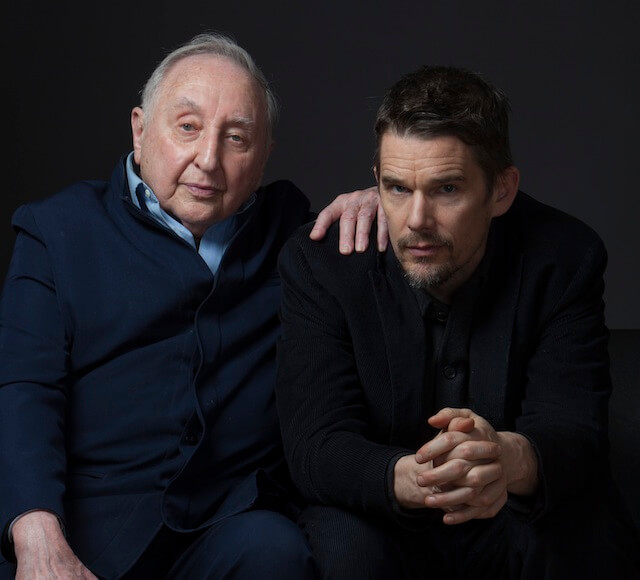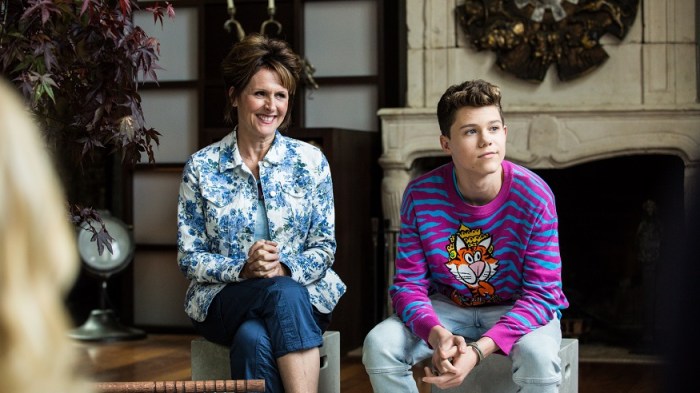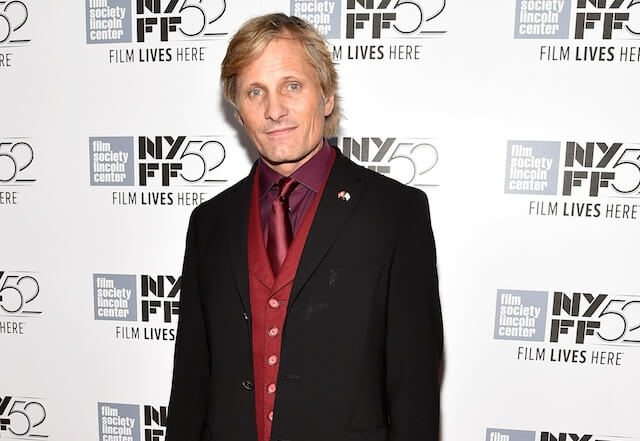Seymour Bernstein says that among the initial reactions to “Seymour: An Introduction,” the documentary Ethan Hawke made about him, were people running up to him in the street, showering him with cries and hugs. It’s not hard to see why. Though ostensibly about music — Bernstein, in his 80s, was a concert pianist who now teaches — it’s really about life, with him warmly imparting his wisdom and idea of how artistic talents can inform how we live. Hawke met Bernstein by chance at a dinner party, and was so wowed with what he said that he decided he’d be a perfect centerpiece for a film. Bernstein and Hawke spoke to Metro, though one mostly sits back and watches them converse. It must have been some conversation you two had. Ethan Hawke: It had a big impact on me. I knew that most people weren’t going to have the chance to have that dinner party. I thought, how wonderful it would be if you could create a scenario where you could really what Seymour’s message was. I didn’t want to make a documentary that was a biopic about somebody. I wanted to capture the feeling of really connecting with someone instantaneously. Seymour Bernstein: There’s a chemistry that draws us to people.
EH: And if you could document that! I was so moved by what Seymour was talking about. I had never heard about integrating the best aspects of a creative life back into your everyday life. We often talk about using your life to create art, but what about this grace that can be achieved through art and bringing it back to you life, so that the two are woven together. That to me was really exciting. It gave me something to live for. I was nowhere near that. There’s a lot of talk in the film of the order of music, and how that’s comforting amidst the chaos of life.
EH: I say this in the documentary, but I sometimes envy people with a specific religious calling. If they’re Buddhists, they follow the eight-fold path. If they’re Christian — I envy that order. SB: But it’s an order that comes from outside them. It doesn’t stem from inside them. Your art starts with you and relating that to your art form. That’s the basic difference.
EH: And I’ve never heard anyone speak this way. And I a) wanted to know more about it and b) thought other people would. They way you speak about the piano is not dissimilar from “Zen and the Art of Motorcycle Maintenance.” The piano becomes a metaphor. It reminded me of working with the great theater directors. When they’re breaking down Ostler’s opening soliloquy in “Henry IV,” they’re really talking to you about how you should live your life. The difference between reciting lines and really playing the play has to do with the big life things. I realized if you can do it on stage, you can do it in life. It’s not dissimilar from people who do one thing for their jobs — say, making sushi — and just perfect that over their life to the point where only they can do it.
SB: You can turn making sushi into an art form. As I said in the documentary, I believe our true identity resides in whatever talent you have. If your talent is for cooking then your true self lies in that area. Look, it comes down to this: quite obviously life influences our art forms. Now we’re talking about our art form influencing our art. Take stock of this now: in the social world, everything is unpredictable. Your job could be snuffed out like that. The person closest to you, one day the whole relationship fizzles out. Have you had that happen to you? But if you’re working on a Shakespearean role, those words are never going to change. The art form is forever. You have a sense of predictability, stability and you work out your emotional, intellectual and even your physical worlds through your art form. Then you get a synthesis, and now you can direct that into your social world. It can’t be totally predictable. But it’s better than nothing. The film also talks about how much we have to think about money in relation to art. After all, artists need to make a living. EH: A friend of mine, he plays rock and roll music. He has a band in Philly. It’s very difficult in the music industry right now. He doesn’t have a record contract, but he knows he’s making good music. In another world he’s Neil Young. He sent me this passionate email, saying he just wants to watch the movie once a week. He felt so in touch with his own music after hearing you talk about it. He’s doing scales again and working on his guitar playing. He feels so inspired to work hard even though the world isn’t patting him on the back and telling him he’s a genius. That’s our dream for this movie. SB: There was a famous producer for classical records. After my Tully Hall recital, he sent for me. He said, “I don’t have to tell you how wonderfully you play. But artistry doesn’t sell records. If you would play all of the Rachmaninoff etudes, we can talk business.” I said, “I’m not interested in playing all the Rachmaninoff etudes.” He said, “Well, we can’t talk business.” My artistry wasn’t enough to sell records. EH: It’s tough, but it’s tough all over and has been for centuries. My friend Rick Linklater has this amazing quality that some people think is self-destructive, but he’s OK with it, which is that sometimes he’ll go into a place to pitch a movie. And they ask him, “What makes you think audiences will go see this?” And Rick will go, “I don’t think they will!” [Laughs] He never bulls—s. And if he did promise he’d be lying. How could he know? We never know what audiences are going to see. At least in this case, audiences do tend to like music documentaries. EH: Who doesn’t like music? Everyone loves music. Music’s the best! But you know why they like [music docs]? Because we all want to know more about music. We want to know musicians, we want to know how it gets made, why we’re moved, how they wrote that song. We want to be the secret eavesdropper. SB: But that doesn’t even describe what the music is. We know there’s a story behind it. There was an island called Ys that sank beneath the sea. There’s a legend that God caused the island to sink because it was filled with sinners. Debussy wrote a piece about it [“The Engulfed Cathedral”] in which the island rises, and you hear the organ and you hear the chorus of men and boys, and you hear the bells tolling. When it’s over it has nothing to do with that. It’s just music. It could be called anything. Do you know how Debussy put the titles of his preludes? There are 24 of them, and the last is “The Engulfed Cathedral.” On the top of the music it just has the number 24. No title. After the last note at the bottom of the page, it reads “(…The Engulfed Cathedral.)” He’s telling you, “If I have to give it a title, this is what I’ll call it.” Follow Matt Prigge on Twitter @mattprigge
Interview: Ethan Hawke and Seymour Bernstein talk music and life

IFC Films
























